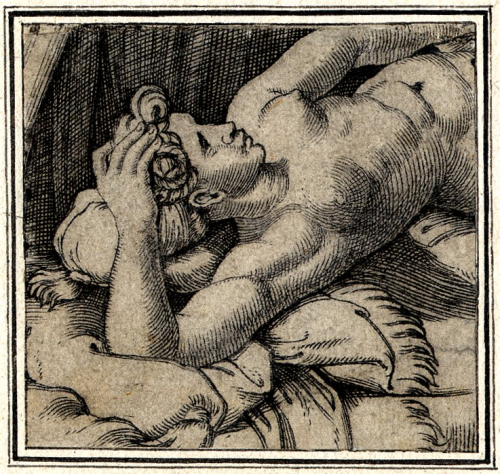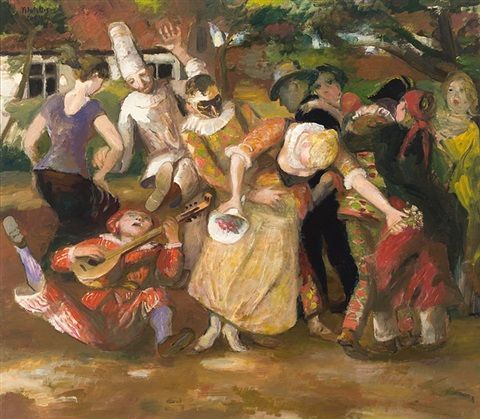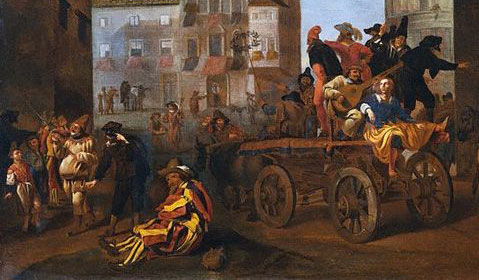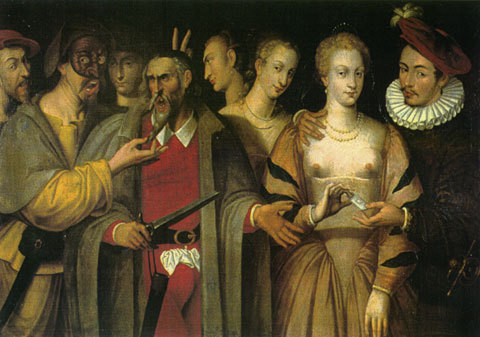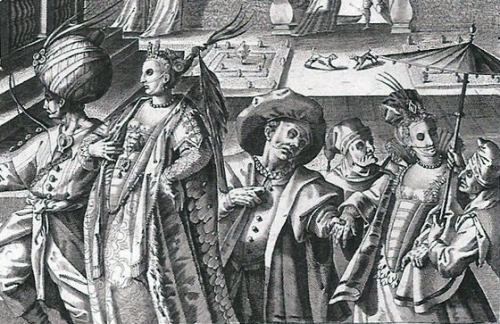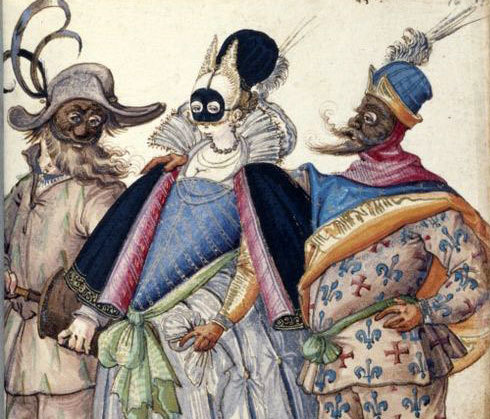Midori Snyder's Blog, page 26
July 2, 2017
Fragments of a Summer Poem for Sunday
So it happens in this hot and rainless Tucson summer, that I miss and long for the lush green of a midwest summer; the gardens exploding with fruit and flowers. So these three verses from Dylan Thomas' beautiful "Fern Hill."
And as I was green and carefree, famous among the barns
About the happy yard and singing as the farm was home,
In the sun that is young once only,
Time let me play and be
Golden in the mercy of his means,
And green and golden I was huntsman and herdsman, the calves
Sang to my horn, the foxes on the hills barked clear and cold,
And the sabbath rang slowly
In the pebbles of the holy streams.
All the sun long it was running, it was lovely, the hay
Fields high as the house, the tunes from the chimneys, it was air
And playing, lovely and watery
And fire green as grass.
And nightly under the simple stars
As I rode to sleep the owls were bearing the farm away,
All the moon long I heard, blessed among stables, the nightjars
Flying with the ricks, and the horses
Flashing into the dark.
And then to awake, and the farm, like a wanderer white
With the dew, come back, the cock on his shoulder: it was all
Shining, it was Adam and maiden,
The sky gathered again
And the sun grew round that very day.
So it must have been after the birth of the simple light
In the first, spinning place, the spellbound horses walking warm
Out of the whinnying green stable
On to the fields of praise....
"Fern Hill," Dylan Thomas
July 1, 2017
Pietro Aretino and The Sixteen Pleasures
I'll admit it -- I'm a fan of Renaissance bad-boy poet Pietro Aretino, whose writings often necessitated his fleeing angry cardinals and creditors, yet whose letters to and from powerful men could have prompted their blackmail, earned him the title "Scourge of Princes." He occupied this place between wealth and privilege and hand to mouth poverty, between high brow literary works and a robust low brow venacular which flourished in the Venetian literary salons in the 16th century.
Renaissance scholar Douglas Biow writes "Aretino represents himself as having an immense, almost insatiable, appetite for food, an appetite that found expression not only in his letters, which rendered him a public figure of notorious repute and created a vogue for such collections in the venacular, but also in works of imaginative literature....he was, according to his vigorous self-mythologizing, open to all types of foods associated with all strata of society, much as, to connect at the outset of this chapter two aspects of pleasure central to his Aretino's life, food and words, he was open to all types of linguistic registers, from the popular to the elite. Aretino self consciously portrayed himself as a great and conspicuous consumer with an enormous appetite. By doing so, he inevitably offered himself up artfully as a figure worthy of consumption in print for the widest possible public." (Biow, In Your Face: Professional Improprieties of Being Conspicuous in Sixteenth Century Italy, p. 66)
My favorite (so far) of his works are the Sonetti Lussuriosi (Sonnets of Lust) in a book I Modi, translated into English by Lynne Lawner as "The Sixteen Pleasures." This collection of poetry was inspired by a series of erotic paintings by Giulio Romano intended as wall frescoes for Federico Gonzaga's Palazzo Te Mantua. But such art is too good to keep hidden, and a fellow artist, Marcantonio Raimondi undertook to engrave versions of the art and published them in 1524 to some success. Soon after, the Pope caught wind of them and Raimondi was imprisoned for indeceny. Aretino went to see his friend Romano and got a private tour of the art, and inspired by those voluptuous figures, penned 16 of arguably the most obscene sonnets ever written to accompany the art. Published together, art and text, I Modi became a bestseller in 1527 throughout Europe and despite efforts by the Vatican to burn all the copies -- forgeries (never as good as the orginal!) emerged. Sadly today, there are only forgeries and copies -- but not one of the original.
I had a spectacular day a number of years back reading Lynne Lawner's history of I Modi and her translations (along with the oldest versions of the art available) in a Special Collections library -- no doubt to keep it protected from naughty college students deciding to add their own art or graffited comments to the work. I blushed, laughed, and celebrated the man who all those centuries ago enjoyed food, sex, and satire with equal poetic joy.
You can see online one of the later copies of I Modi from 1550, argued to have been created by a copyist who actually saw the original. The sonnets (in Italian) are included with the woodblock prints. The British Museum has 9 fragments from the original engravings in their archives, including the three in this post. I would also like to recommend a wonderful novel, The Sixteen Pleasures, by Robert Hellenga -- set in the frenzy of art restoration after the flooding Florence in 1966, a young volunteer discovers a waterlogged copy of the infamous book, hidden in a convent.
June 20, 2017
From Respite to Revision: Why Hiking in the Mountains Is Good For Novel Writing
Yes, I have been missing here for awhile, but I have been crazy busy: a glorious trip to Colorado to hike the Flat Irons and listening to my little granddaughter tell me stories about woodpeckers, tigers, and trains. It was also a chance to revisit in my mind the novels I am gently re-editing. In Sadar's Keep, most of the novel takes place in the Avadares Mountains -- and finding myself with my family hiking through the beautiful Colorado Front range, my imagination was fueled and fed.
I am almost done with re-editing the second book of the Oran trilogy (the first one is at the copy editor) and I think on track to get all three books out in kindle by October. But, since my trip to the mountains, I also have been working on a fourth book in the Oran series because it feels like there should have been one -- so hoping to get that out as a bonus at the same time as the others for those who have been asking for the kindle editions.
June 18, 2017
Hiking the Ute Trail in the Colorado Front Range
What a beautiful hike up the Ute Trail where at around 7,000 ft there was a profusion of wildflowers blooming brightly beneath the pines. It was a huff and puff for me to catch my breath initially, but I adjusted to the thinner air and then didn't want to leave such a lovely place. My young grand daughter loves to say "Ute" and this is her favorite trail too. At a mere two years old, she is already a seasoned mountain girl, hiking regularly with her mother. It made me so happy to have three generations walking here and swooning over flowers, consulting identification books and adding new names to our list.
June 6, 2017
Excerpt from The Innamorati: The Libertini Create New Work in the Midst of Great Food II
Commedia dell'Arte troupes crisscrossing the country to perform are often at the mercy of events they have no control over, like difficult audience members and bad weather. In the midst of rain and misery, the kindness of an unexpected patron in a small village becomes a welcomed gift. Food, wine, and local stories fuel the imaginations of the actors.
The actors of the Libertini huddled beneath the archway of a narrow street leading into Camogli's triangular piazza. Slanting sheets of rain splashed down on its black and white patterned stones; a church built on the seaward side sheltered it from the worst of the storm. Next to the church, the fishing boats tied to the harbor wall bounced in the rough sea. All along the landward side of the piazza, a street of tall row houses had closed their shutters against the wind and driving rain. There was no one abroad in the streets of Camogli, not even the usual stray cat.
In the archway, the Commedians stared glumly at the rain. The women held their skirts gathered in their hands to keep the hems from dragging in the water that sluiced down the shining black cobblestones. The baby Rosella fussed, her cheeks bright red in the chill. The men, leaning against the wall, wrapped their short capes around them, the feathers of their costume hats drooping with the damp. Alberto was alternately swearing at himself, swearing at God, and swearing at the bad luck that had brought this wretched storm on the day of their first performance.
They had entered Camogli in the early morning, when the sky was burning with red clouds to match the intensity of Alberto's temper. He was seething over the loss of the Arlecchino mask. Fabrizio had confessed in stammers to accidentally dropping it into the sea. Dropping it into the sea! It could portend disaster for the whole troupe. Silvia fingered her little gold cross nervously, Bruno and Gianni made secret gestures to ward off bad luck, Matteo sulked, Flavio chewed his nails, and Antonio tucked a blue Turkish bead on a string underneath his doublet to protect himself from evil. The damn fool, Fabrizio, just made it worse by stuttering worthless apologies to anyone with the patience to listen.
Once they had arrived in Camogli, Isabella urged Alberto to set up the show early and begin with some short pieces to advertise the evening performance. "Give them something to do so they don't fret," she advised. "Applause is the best cure!"
They set up the wagon and the trestle stage on top. From the trestle they had hung bright yellow drop cloths to form background walls. Fiammetta played her mandolin and Silvia danced a salterello to attract the villagers. As a crowd gathered, Arlecchino and Pulcinella made their appearance amid snickers and light applause. The two masks were arguing over a piece of cake that Arlecchino was happily eating but Pulcinella wanted. When Arlecchino refused to share even a morsel with his companion, Pulcinella decided to trick Arlecchino into believing he was very ill. Before long poor Arlecchino was staggering and moaning while Pulcinella expounded on his pallor. When Pulcinella at last declared him dead, Arlecchino obediently lay down and surrendered the cake to his greedy tormentor. It was left to Colombina to convince her beloved Arlecchino that he wasn't dead after all. Everything was going well. The crowd was small but enthusiastic, standing attentively before the stage, their tasks temporarily forgotten as everyone watched the performance. Alberto knew that if the troupe could hook them now, the audience would return in the evening to see the full performance and pay out a few of their hard-sweated coins. The crowd had just begun to loosen up when a thick bank of dark grey clouds settled heavily above the piazza. Read more > > >
Excerpt from The Innamorati: The Libertini Rehearse, I, Excerpt from The Innamorati: The Libertini Dine and Create, II.
June 5, 2017
Excerpt from The Innamorati: The Libertini Rehearse, I
The Commedia was a vigorous form of theater and the demands of a largely improvised theater, with certain stock plots and bits of commedic exchange required a free flowing rehearsal -- a chance to invent and reinvent the plays so as to always remain fresh and current to their audiences. There were also the shere physical demands on the part of those who played the Zanni -- the clowns, and there was in the background, a kind of on-going apprenticeship with the children of the actors to acquire experience and understanding of their parent's craft.
Beneath a star-studded sky, the maestro of the Libertini studied his actors and pondered the next two weeks. Alberto Torelli was a tall, well-built man. Though in his forties, he carried himself like an athlete. His black hair, salted with grey at the temples, was thick and wavy. He had an expressive face, with arched eyebrows poised over intense, dark eyes. He wore a neatly trimmed mustache and goatee, which he stroked as he thought about their plans. In a month the Libertini would perform in the wealthy palazzos of Milan's nobles. There they would find a much better reception than at this rude seaside camp where they were now. But Alberto knew that his company needed the journey along the coast to develop new plays. They needed more rehearsals and the opportunity to experiment in front of rougher audiences. If these villagers laughed, if they wept and applauded, then Alberto knew his troupe could proceed with confidence to the more daunting audiences of the nobility.
Alberto had high hopes for this company. It was a good mix of experienced hands and energetic newcomers. From Milan they would go west to Turin, and then across the border into France. There, with the right letters of introduction, they would be able to make a comfortable season for themselves.
Alberto glanced at his wife, Isabella, where she sat reading a book of poetry. She was radiant in the glow of firelight, her skin the color of ivory, her long golden hair rippling over her soft, rounded shoulders. Even in the crude camp of wagons and horses, she maintained an aura of elegance. She sat on rugs amid Turkish pillows, her tiny feet encased in embroidered slippers. Isabella was born a prima donna, an Innamorata who could seduce the audience simply by her feminine presence. Alberto had never been happier in his life than the day she had consented to marry him.
As if feeling the warmth of his stare, Isabella glanced up from her book and smiled. Alberto felt his knees go weak. She kissed a pearl-colored fingertip and blew the kiss to him before returning to her book. Alberto caught the kiss and touched his fingers to his own lips. Beyond Isabella sat Fiammetta, who was nursing her baby daughter, Rosella. Fiammetta was married to Flavio Fiorillo, the actor working on the role of II Dottore. Sitting next to her was Alberto s daughter, Silvia, practicing a singing duet with Fiammetta. At sixteen, Silvia was already a charming young woman. But where her mother, Isabella, was golden, Silvia was raven-haired, like Alberto. She had expressive dark eyes and a pouting red mouth.
"You piece of Spanish shit!"
"Italian sop!"
"Paella-breath!"
"Pasta-head!"
"Crab louse! You're getting on my tits!" "Pus-plague sore!"
"I vomit your insults and throw them at your pox-covered face!"
"I'm going to kill you for that!"
Alberto smiled, watching the antics of Gianni Moretti and Bruno Pasquati rehearsing a scene between the blustering II Capitano and the scrappy king of insults, Pulcinella. The upper halves of their faces were covered by black leather masks with huge black noses and rumpled foreheads. Bruno, playing Pulcinella, wore a tall dusty fez, while Gianni, as II Capitano, had a sweeping mustache that puffed out with every word he spat. The two actors swaggered with huge pot bellies, their shoulders thrust back as they traded insults.
Excerpt from The Innamorati: The Libertini Rehearse, I, Excerpt from The Innamorati: The Libertini Dine and Create, II.
May 26, 2017
Warp & Weft in the Trees
Visiting Harper's Ferry to learn more about John Brown and his ill-fated uprising against slavery. It is truly in one of the most beautiful places in this country, just at the point where three rivers converge. In the green woods around it, I came across these two trees entwined, like warp and weft.
May 25, 2017
Beautiful Places
Old Town Alexandria -- out of the desert and into this beautiful rainy, misty unbelievably green world. And so many places to visit...
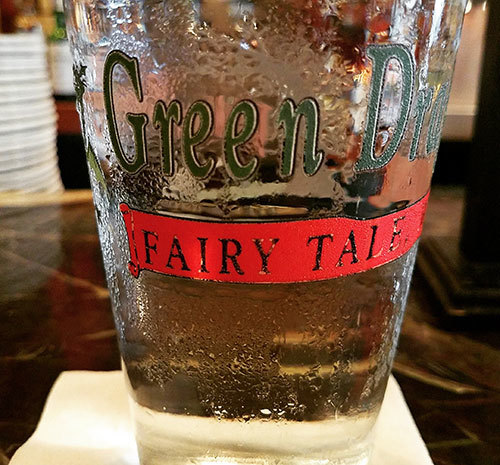
May 21, 2017
Everyone's A Critic: The "Obscene" Comedies Everyone Wanted to See And Then Complain About.
In 1590 Conte Ulysse de Bentivolgio described a company of Commedia actors as: "It is a brothel of infatuation between strumpets and scamps." (Perhaps shocked by the troups insistance on having women actors actually play the female roles. Very un-Shakespearean.)
In 1637 Father Girolamo Fiorentini said it was a mortal sin to witness obscene comedy (he was referring to the plays of the Italian Commedia dell'Arte) and every comedy was obscene that "treated" (concerned itself with matters) of love and secret marriage (which was pretty much the plot of every Commedia play). But, it was not a sin to see the plays if "one does not take pleasure in the obscenity, but only goes to satisfy his curiosity or for enjoyment." Can't you just see the good father delivering a line like that with a straight face?
Apparently, there were nobles who enjoyed the plays just a bit too much, for in the same period, when the Commedians performed in a theater (instead of their usual outdoor stages) nobles would come on stage and "make love" to the actresses during the performance -- and woe to the actor who objected. Fines were eventually enacted against people (especially the nobles) whose actions impeded the play.
A Deadly Performance
I am uncertain where this piece of information came from originally -- I neglected to write down the cite perhaps already transforming it into a scene I myself might write, while metally putting it into the "truth is stranger than fiction" category.
"A troop of Mattacini (masqueraders) came to celebrate a bridegroom's wedding and invited him to join in and participate in the play. At one point he "appears" to be killed and is loaded up in a mock funeral. Only later does the bride and family discover that he was indeed strangled by his rival."
Midori Snyder's Blog
- Midori Snyder's profile
- 87 followers






